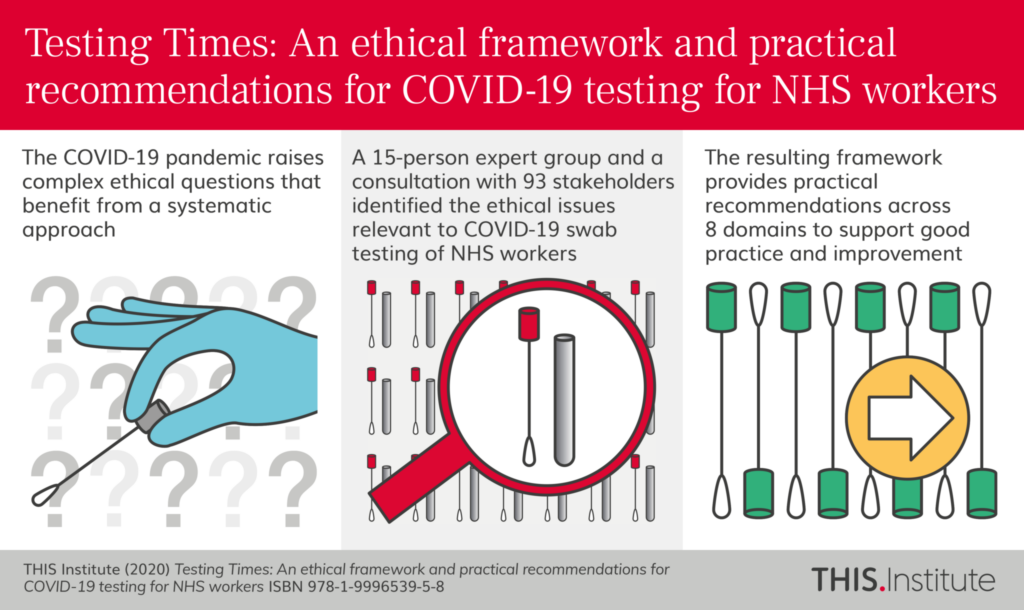THIS Institute at the University of Cambridge has undertaken a rapid response project to develop an ethical framework for COVID-19 testing for NHS workers. It sought to identify and characterise the ethical considerations likely to be important to the testing programme, while recognising the tension between different values and goals.
The project was guided by an expert group and by an online consultation exercise held between 27 May and 8 June 2020 to characterise the range and diversity of views on this topic. The 93 participants in the consultation included NHS workers in clinical and non-clinical roles, NHS senior leaders, policy-makers, and relevant experts.
The project report emphasises that getting the COVID-19 swab testing programme for NHS workers right is crucial to support staff and patient safety and broader public health. It also recognises that COVID-19 does not affect all population groups equally. People who are socio-economically disadvantaged or members of Black, Asian and Minority Ethnic (BAME) groups may face distinctive issues in relation to testing.
The report offers an ethical framework and practical recommendations to help guide good practice nationally and locally to ensure:
- Clarity about goals of testing;
- Access, effectiveness, and efficiency;
- Acknowledgement and management of the strengths and limitations of the current test;
- Understanding how the test is used in practice and the implications of these uses;
- Clarity in relation to choices about testing both in principle and in practice;
- Clarity about data protection and confidentiality;
- Trustworthiness and legitimacy;
- High quality information and communication about testing.
Building trust and confidence in the COVID-19 swab testing programme for NHS workers requires clear, transparent, and accessible communication from system leaders over all aspects of testing, including, for example, openness over the current limitations of testing (including its relatively high rate of false negatives), how data about test results will be shared, and how results may be used for decisions about fitness for work and allocation to work areas. Local logistics should support prompt and easy access to testing for all those who need it, noting that access has improved since the start of the pandemic. Access should be designed to ensure equity. Eligibility for testing should be clear to everyone. The possible unintended consequences and implications of testing, including frequent testing, for particular groups should be considered.
Offering a set of practical and actionable recommendations, the analysis illustrates the value of explicit, systematic and consultative consideration and ethical issues. The framework can allow progress that has already been made to be tracked, as well as providing direction and means of monitoring future improvement. It is likely to have relevance to many other areas of practice and policy in response to the pandemic.
At a glance










